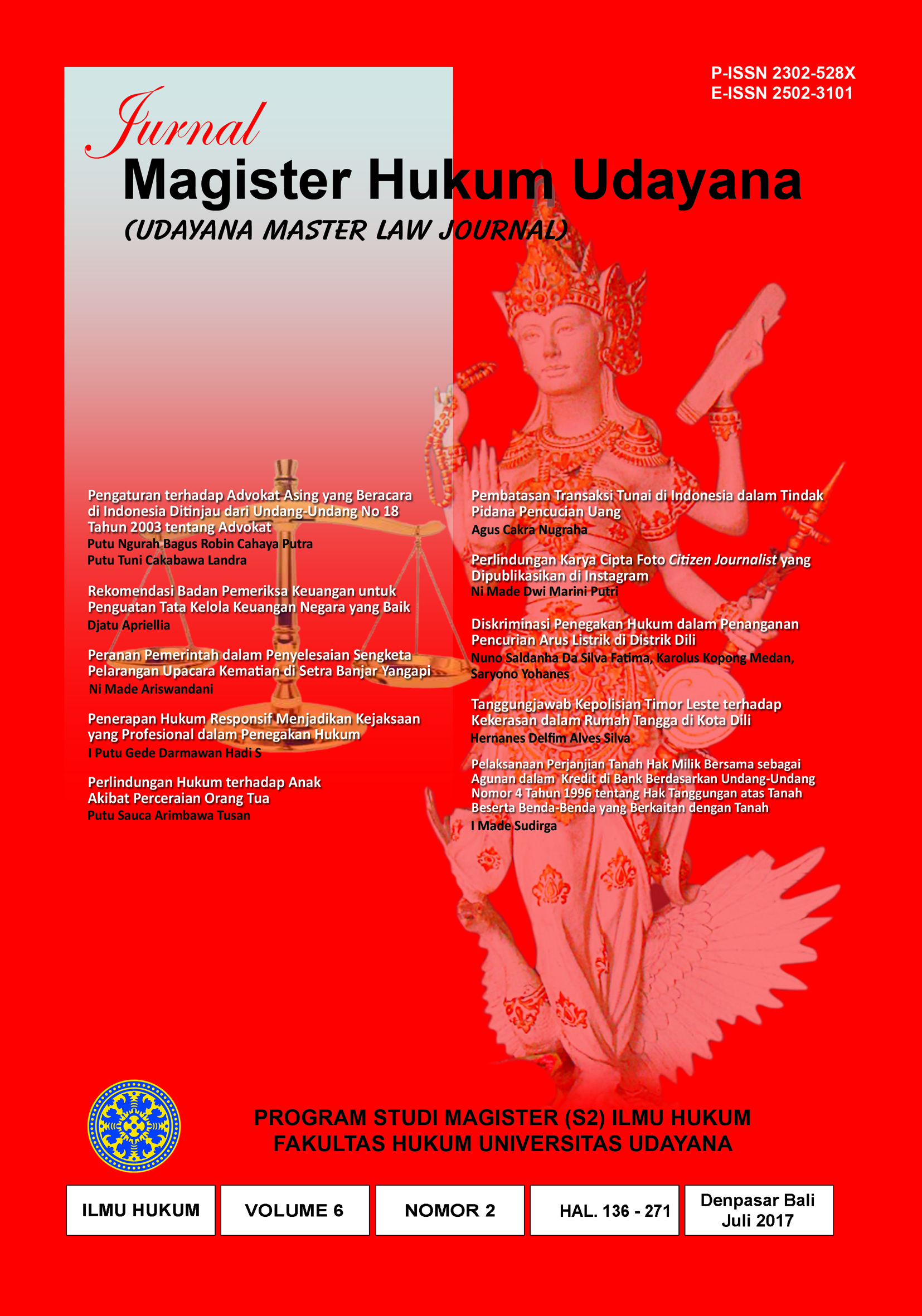PEMBATASAN TRANSAKSI TUNAI DI INDONESIA DALAM TINDAK PIDANA PENCUCIAN UANG
Abstract
Combating crime is repressive, in the old paradigm insists on Follow the Suspect is more focused on the pursuit of the perpetrators. Unlike the case with the new paradigm that emphasizes the pursuit of money or the Follow the Money or trying to trace property derived from crime, which is then reconstructed where wealth and what criminal act that gave birth to such property. This approach is easier than with conventional approaches for money laundering is the weakest link of a crime. Pursuing the perpetrators of crimes are relatively more difficult, than the pursuit of crime.
Pemberantasan kejahatan secara represif, dalam paradigma lama menekankan pada Follow the Suspect lebih menitikberatkan pada pengejaran para pelaku kejahatan. Berbeda halnya dengan paradigma baru yang lebih menekankan untuk mengejar uang atau Follow the Money atau berupaya melacak harta kekayaan yang berasal dari kejahatan, yang kemudian direkonstruksi dari mana kekayaan itu dan tindak pidana apa yang melahirkan kekayaan tersebut. Pendekatan ini lebih mudah dibandingkan dengan pendekatan konvensional karena pencucian uang adalah mata rantai paling lemah dari suatu kejahatan. Mengejar pelaku kejahatan relatif lebih sulit, dibandingkan dengan mengejar hasil kejahatan.
Downloads
Jurnal Magister Hukum Udayana (Udayana Master Law of Journal) by Faculty of Law Udayana University is licensed under a Creative Commons Attribution-NonCommercial 4.0 International License.



















